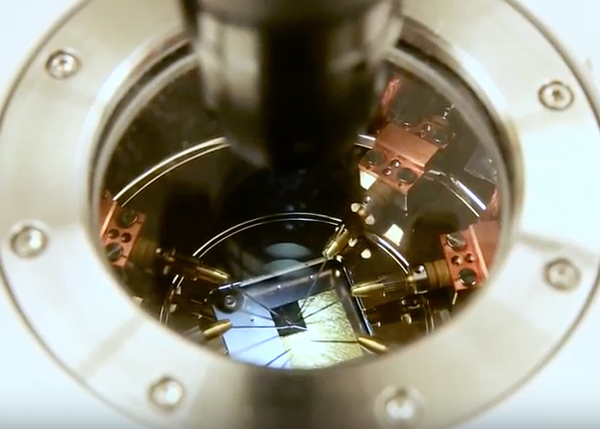
Researchers at the University of Notre Dame are active in many areas of modern electronics research, including materials, devices, architectures, and systems. As the digital infrastructure evolves, with the emerging ubiquity of sensor networks, embedded intelligence, and the “Internet of Things,” Notre Dame’s Departments of Electrical Engineering and Computer Science and Engineering are working to expand and connect these areas of traditional research strength by developing new capabilities in advanced circuits research.
“Electronics research can be carried out at a number of different hierarchical levels,” explained Thomas E. Fuja, Professor and Chair of the Department of Electrical Engineering. “The University’s Advanced Circuits Initiative lets us leverage the great work that Notre Dame engineers are doing at the most basic levels – research into the properties of semiconductor materials and fundamental devices like transistors – to enable advances in higher-level systems like computing architectures and wireless communications. Circuit technology is the bridge that ties these different efforts together to maximize their collective impact.”
Learn more about Notre Dame’s research in the area of advanced circuits in this new video, which features Jonathan Chisum, Assistant Professor of Electrical Engineering; Suman Datta, Chang Family Professor of Engineering Innovation in Electrical Engineering; Bertrand Hochwald, Freimann Chair Professor of Electrical Engineering; Xiaobo Sharon Hu, Professor of Computer Science and Engineering; and Alan Seabaugh, Frank M. Freimann Chair Professor of Electrical Engineering.
To watch the video, which is part of the Advancing Research series, and learn more about History at Notre Dame, please click here.
The University of Notre Dame is a private research and teaching university inspired by its Catholic mission. Located in South Bend, Indiana, its researchers are advancing human understanding through research, scholarship, education, and creative endeavor in order to be a repository for knowledge and a powerful means for doing good in the world.
Originally published by at research.nd.edu on March 08, 2017.